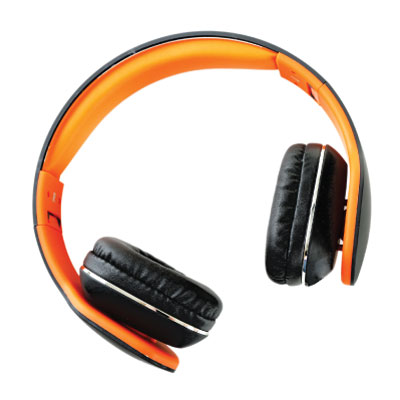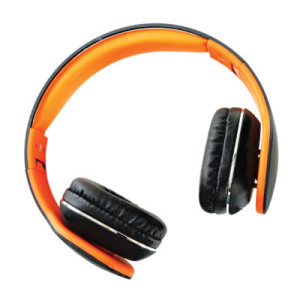
People with disabilities from culturally diverse communities sharing practical tips about living well. Listen to our content sorted by language at speakmylanguage.com.au The Speak My Language (Disability) program involves people with disabilities from culturally and linguistically diverse backgrounds, and other guest speakers, sharing practical tips and resources to support living well with a disability. Speak My Language (Disability) is funded by Commonwealth Department of Social Services and is proudly delivered via an historic partnership between all State and Territory Ethnic and Multicultural Communities‘ Councils across Australia.
Episodes

Tuesday Oct 24, 2023
Mở ra những mục tiêu nghề nghiệp (Unlocking Professional Goals)
Tuesday Oct 24, 2023
Tuesday Oct 24, 2023
Đối với nhiều người khuyết tật, việc mở ra các mục tiêu cá nhân và nghề nghiệp mang lại sự hài lòng trong cuộc sống và sự độc lập của họ.
Lý* đặt chân đến miền Tây Úc vào đầu những năm 1980 khi còn ở độ tuổi thiếu niên. Sau khi mắc bệnh tăng nhãn áp, một bệnh lý về mắt khó chữa, anh phải điều chỉnh cuộc sống của mình do mất dần thị lực. Nhờ sự giúp đỡ của gia đình, một bác sĩ tuyệt vời, một nhà tâm lý học, 3 nhân viên xã hội và một nhà trị liệu nghệ thuật tuyệt vời, anh đã trở thành con người như ngày hôm nay - một người với cách nhìn mới và quan điểm độc đáo về cuộc sống.
*Khách mời đã lựa chọn dùng bí danh.
Transcript
Ha: Đối với nhiều người khuyết tật, việc mở ra các mục tiêu cá nhân và nghề nghiệp mang lại sự hài lòng trong cuộc sống và sự độc lập của họ.
Hôm nay chúng ta sẽ nghe anh Lý kể về việc mình dần mất thị lực. Anh đã lo lắng sau khi được chẩn đoán rằng anh có thể không bao giờ làm việc được nữa, nhưng sau cùng anh đã quay lại chính công việc anh đã làm trước khi bị mất thị lực.
Chúng tôi đã trò chuyện với anh Lý về cảm giác khi anh quay trở lại làm việc.
Lý: Lúc mà tôi bị cái bệnh glaucoma này thì tôi cảm thấy rất là mất mát tại vì cái đời sống của tôi trước khi tôi bị bệnh này thì nó rất là khắng khít với công việc làm của tôi. Bởi vậy nên tôi rất là mất mát rất là nhiều. Nhưng mà sau này lúc mà tôi tìm được lại công việc tương tự như tôi làm trước thì tôi cảm thấy đầy đủ lắm vì nó đem lại được cuộc sống tốt đẹp cho tôi vẹn toàn hơn.
Ha: Làm thế nào để chúng ta tìm được mục tiêu nghề nghiệp của mình sau khi mất thị lực? Chúng ta hãy nghe tiếp những chia sẻ của anh Lý.
Lý: Trong trường hợp của tôi, tôi đã biến tình trạng khuyết tật thành có lợi cho tôi hơn là chống lại tôi. Tôi tìm kiếm việc làm bằng cách lái tình trạng khuyết tật của mình theo hướng thích hợp, hướng tích cực. Tại buổi phỏng vấn, tôi đã nói với nhà tuyển dụng rằng tôi bây giờ là một tài sản quý giá hơn so với trước khi tôi bị mù. Trước đây, tôi có quá nhiều sở thích, quá nhiều thứ trong cuộc sống khiến tôi xao nhãng, không tập trung vào công việc. Nhưng bây giờ do bị suy giảm thị lực, tôi phải từ bỏ nhiều sở thích đó vì nó đòi hỏi thị lực bình thường, đồng nghĩa với việc tôi có nhiều thời gian hơn để tập trung vào công việc của mình bây giờ.
Ha: Như quí vị đã thấy, người khuyết tật có nguyện vọng nghề nghiệp như mọi người khác và có thể mang lại nhiều giá trị cho lực lượng lao động.
Khi anh Lý bị khiếm thị, anh ấy đã sử dụng các nguồn lực có thể giúp anh thích nghi với tình trạng mới.
Một trong những nguồn lực như vậy dành cho người khiếm thị là Vision Australia, nơi cung cấp hỗ trợ cho những người trên con đường việc làm của họ. Bây giờ chúng ta sẽ nghe Jenny Võ, nhân viên của Vision Australia, để khám phá những nguồn tài nguyên nào có sẵn.
Jenny: Hiện tại Vision Australia có 3 chương trình. Một chương trình là Leap, L-E-A-P, một chương trình là Leap Up, và một chương trình là DES. Đó là chương trình Disability Employment Services, chương trình hỗ trợ tìm kiếm việc làm dành cho những người khuyết tật. Chương trình Leap và Leap Up là dành cho những thanh thiếu niên từ 14 đến 18 tuổi và họ có những định hướng khác nhau. Chương trình DES cũng dành cho những người từ 14 tuổi trở lên nhưng mà họ không đi học nữa và họ đã sẵn sàng tham gia vào thị trường lao động.
Ha: Câu chuyện của anh Lý là một trong nhiều câu chuyện cho thấy những người có các dạng khuyết tật khác nhau có thể tìm và duy trì công việc miễn là họ có sự hỗ trợ phù hợp.
Nếu quí vị đang tìm kiếm sự giúp đỡ để thực hiện các mục tiêu nghề nghiệp của mình, Disability Employment Australia là cơ quan cao nhất có thể đại diện cho nhu cầu của quí vị.
Các thành viên của họ chuyên tìm việc làm cho người khuyết tật với mức lương thực tế gần với những người không bị khuyết tật.
Quí vị có thể tìm hiểu thêm tại disabilityemployment.org.au.
Tất nhiên, trách nhiệm thực sự thuộc về nơi làm việc. Tùy thuộc vào các nhà tuyển dụng để tạo ra mội trường hòa nhập hơn. Những câu chuyện như của anh Lý rất đáng được quan tâm vì nó cho người sử dụng lao động thấy rằng người khuyết tật có thể là tài sản hữu ích cho nơi làm việc.
Quí vị nên biết rằng nơi làm việc phải tạo điều kiện thuận lợi hợp lý cho nhân viên khuyết tật của họ, để đảm bảo mọi người đều có nơi làm việc an toàn và phù hợp.
Để tìm hiểu thêm về điều này, hãy truy cập www.fairwork.gov.au và nhấp vào trang web có tên Employees with disability.
Quí vị cũng có thể tìm thêm các nguồn lực với IncludeAbility, một sáng kiến của Ủy ban Nhân quyền Úc nhằm hỗ trợ người khuyết tật đang tìm việc làm và những người sử dụng lao động muốn tạo cơ hội việc làm có ý nghĩa cho nhân viên khuyết tật. Truy cập includeability.gov.au
About the guest speaker
(
For many people with disabilities, unlocking personal and professional goals provides satisfaction in life, and provides independence.
Ly* came to Western Australia in the early 80s as a very young teenager. After being diagnosed with glaucoma, an incurable eye condition, he had to adjust to a new way of life without his sight. With the help of his family, a wonderful doctor, a psychologist, 3 social workers, and an amazing art therapist, he became the person he is today - a person with a new outlook and unique perspective on life.
*The storyteller has chosen to use a fake name to remain anonymous.
Transcript
Ha: For many people with disabilities, unlocking personal and professional goals provides satisfaction in life, and provides independence.
Today, we will hear from our storyteller Ly who gradually lost his vision. Ly was worried after his diagnosis that he may never work again, but he was able to secure employment at the same place he worked at before he lost his vision.
Earlier, we spoke with Ly about what it was like transitioning back to work after losing his eyesight.
Ly: When I had this glaucoma, I felt very lost because my life before it was so closely related to my job. That's why I lost a lot. But later, when I found the same job as I did previously, I feel very fulfilled because it gives me a better life more fully.
Ha: How did you seek your professional goals after losing your eyesight? This is what Ly shared with us.
Ly: In my case, I made my disability work for me rather than against me when I looked for employment by putting a positive spin on my disability. At the interview, I told my employer that I am now is a greater asset to them than I was before I became visually blind. Before, I had too many hobbies, too many life distractions to focus on work but now due to my vision impairment, I had to give up many hobbies that require normal vision which means I should have more time to focus on my job.
Ha: People with disabilities have career aspirations like everyone else and can offer a lot of value to the workforce.
As Ly became visually impaired, he used resources that could help him adjust to life with a new condition.
One such resource for people who are blind is Vision Australia, which offers support for people on their employment pathways. We will now hear from Jenny Vo, who works at Vision Australia, to discover what resources are available.
Jenny: Currently Vision Australia has 3 programs. One program is Leap, L-E-A-P, one program is Leap Up, and one program is DES. It is the Disability Employment Services program, a job search assistance program for people with disabilities. The Leap and Leap Up programs are for the 14 to 18 year olds, and they have different orientations. The DES program is also for people who are 14 years of age or older, but they are no longer in school, and they are ready to enter the labor market.
Ha: Ly’s story is one of many. People with different types of disabilities can find and maintain work so long as they have the right support in place.
If you are seeking help to realise your professional goals, Disability Employment Australia is the peak body that can represent your needs.
Their members specialise in finding people with disability employment, for real wages alongside people who do not have disability.
You can learn more at disabilityemployment.org.au.
Of course, the real responsibility rests with workplaces. It is up to employers to be more inclusive. The reason why it is important to hear stories like Ly’s is that it shows employers that people with disabilities can be productive assets to a workplace.
You should know that workplaces must make reasonable accommodations for their employees with disabilities, to make sure everyone has a safe and suitable workplace.
To learn more about this, visit www.fairwork.gov.au and click on the webpage called Employees with disability.
You can also find more resources with IncludeAbility, an initiative of the Australian Human Rights Commission that supports people with disability looking for work and employers who want to create meaningful employment opportunities for employees with disability. Visit includeability.gov.au
About the guest speaker
)

No comments yet. Be the first to say something!